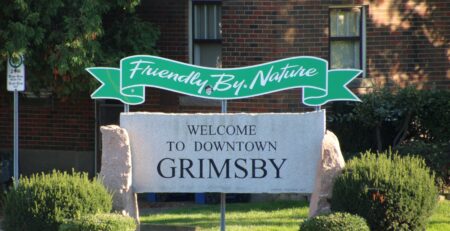 Two recent cases of campus censorship provide instructive contrast on the best course of action when it comes to upholding the standard for a free exchange of ideas.
Two recent cases of campus censorship provide instructive contrast on the best course of action when it comes to upholding the standard for a free exchange of ideas.
Armin Navabi is founder of the group Atheist Republic. He is an ex-Muslim who believes Muslims should abandon their religion for atheism rather than attempt to reform it.
On March 19th 2019, two days before Navabi would deliver a presentation on “The Case against Islamic Reform” at Mount Royal University (MRU), MRU’s interfaith coordinator unilaterally cancelled the event, citing heightened sensitivities following the tragic Christchurch mosque shootings of March 15th.
In a statement, an unidentified MRU official wrote “The tragic event that occurred in Christchurch less than a week ago has had a large impact on many members in our community. We made this decision in light of that impact…”
MRU’s Office of Campus Equity and Meaningful Inclusion simultaneously mounted a poster campaign featuring the Quranic verse “Indeed we belong to Allah, and indeed to Him we will return” to promote an on-campus vigil for the victims of the Christchurch mosque shootings.
Fortunately, and thanks to pressure from the public and members of the University community who wanted to hear Navabi’s point of view, MRU reversed course. President David Docherty stated that the decision to deplatform Navabi “while right for some, was not right for all. If the speaker is willing to speak on our campus, we will have him back. An outreach has already been made.”
Docherty’s message embraced the importance of disagreement, debate, and different perspectives in an academic context. It ended by saying “we must, and we will, uphold the ideals of freedom of expression and academic freedom in our words and in our actions.”
MRU’s expression of regret and sincere willingness to mend their wrongdoing was starkly different than what happened at the University of British Columbia (UBC).
The UBC Free Speech Club (FSC) planned to host philosophy podcaster Stefan Molyneux and independent journalist Lauren Southern at the on-campus Chan Centre for the Performing Arts.
In response to the FSC’s event, a group dubbing themselves UBC Students Against Bigotry petitioned UBC to cancel the FSC’s booking. They claimed Molyneux promotes “white supremacy and gender inequality” because of his positions on race and IQ, immigration, and sex differences. The group also took issue with “anti-feminist” Lauren Southern, claiming that she espouses “racism towards Indigenous nations” that is unacceptable on “the traditional, ancestral and unceded territory of the Musqueam peoples who are our hosts here on campus.”
The Chan Centre quoted the club $5,000 in security fees to hold the event on campus. They cited security risks arising from potential protests and disruption, given the controversial subject matter, and told them the cost was subject to increase based on “risk assessments” they would conduct every couple of weeks.
UBC failed to recognize its own responsibility to provide a safe space for the free exchange of ideas on campus–even when that exchange of ideas might offend others.
While I was a graduate student at Wilfrid Laurier University (WLU), I founded a group called the Laurier Society for Open Inquiry. It endeavoured to host speakers who held thought-provoking, perhaps controversial views, but were denied mainstream platforms. We recognized the importance of giving banned speakers a voice, and more importantly, we recognized the value of others to hear these ideas for themselves, reach their own conclusions, and challenge bad ideas with better ones. To me, this is the core of a truly liberal education.
We invited former Rebel Media commentator Faith Goldy to speak at the University of Waterloo’s Theatre of the Arts, alongside University of New Brunswick professor Ricardo Duchesne, about borders, immigration, and identity (This, after a speaking event we planned at WLU featuring Goldy was shut down by a protestor who pulled the fire alarm). The University of Waterloo, while initially telling us security costs would be less than $5,000, ended up quoting us $28,500, citing the recent Toronto incel van attack as the reason for increased security needs.
None of the deplatformed speakers mentioned in this article are guilty of any illegal acts or hate speech, so why are our universities censoring lawful and peaceful discussions by imposing exorbitant security fees?
The University of Waterloo and the University of British Columbia could learn a thing or two from Mount Royal University, and should re-invite the speakers they previously shut out. Though there are many examples of Canadian universities getting it wrong when it comes to free speech and open inquiry, MRU should be commended for–eventually–getting it right.
Lindsay Shepherd is Campus Free Speech Fellow at the Justice Centre for Constitutional Freedoms. Follow her on Twitter! @NewWorldHominin








